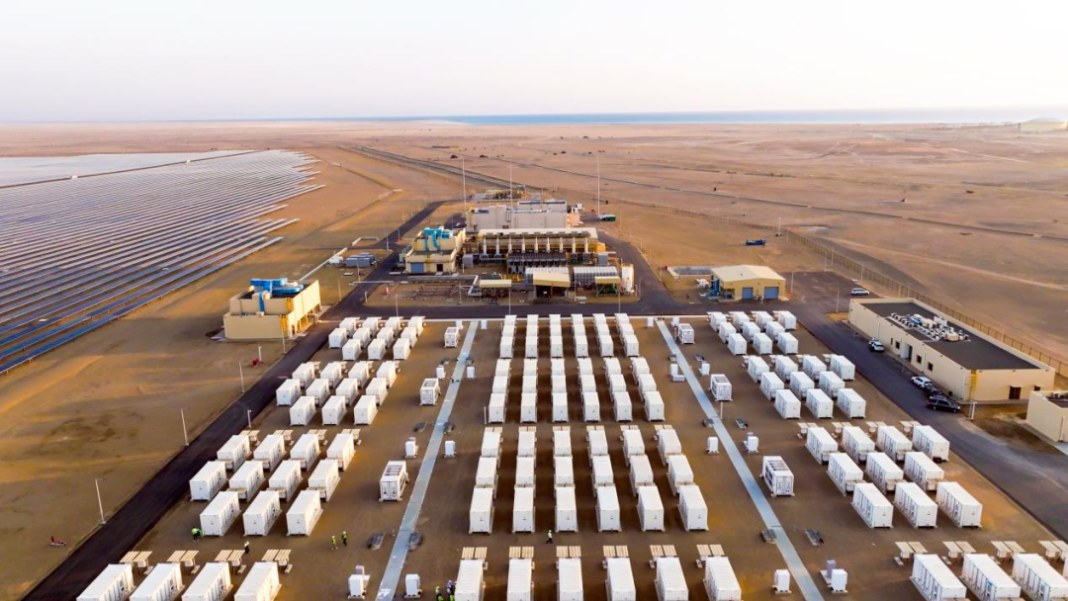BEIJING: Nestled on the Red Sea coast of northwest Saudi Arabia, Neom, a brand-new metropolis, has reached a major milestone in its journey toward sustainable development. It successfully completed the construction of a 1.3 GWh energy storage capacity in June this year. The project is the world’s largest energy storage venture, supported by advanced technology from China.
This state-of-the-art system integrates renewable energy from wind and solar turbines alongside facilities such as a seawater desalination plant and a waste management center, creating a fully independent energy supply system for the city.
Launched in July 2017, the city’s energy storage project is a cornerstone of Saudi Arabia’s “Vision 2030” initiative. Designed to provide Neom with 100 percent clean energy, the project, upon completion, is expected to generate up to 650,000 MWh of renewable energy annually, achieving zero carbon emissions, equivalent to reducing nearly 500,000 tonnes of CO2 emissions per year.
Saudi Arabia has set an ambitious target to increase renewable energy’s share in its national energy mix to 50 percent by 2030.
In recent years, China has carried out a large number of green projects with other countries, bringing its expertise and experience in renewable energy to these countries and promoting the green and sustainable development of the global economic governance system.
When addressing Session II of the 19th G20 Summit on Reform of the Institutions of Global Governance on Monday, Chinese President Xi Jinping stressed the significance of building a fair and equitable global governance system, calling on G20 members to improve global economic governance, global financial governance, global trade governance, and global digital governance so as to build an open, innovative, green and stable world economy.
China has been a staunch promoter of free trade and globalization and has always been standing together with developing countries, empowering them with development capabilities through various initiatives, such as the Belt and Road Initiative (BRI).
In 2013, China launched the BRI to promote economic growth and connectivity among participating countries. Since its inception, over 150 countries and 30 international organizations, primarily from the developing world, have signed cooperation agreements with China.
By constructing key infrastructure such as railways, highways, ports, power grids, and communication networks, the BRI has significantly improved infrastructure in developing nations, boosting trade efficiency and facilitating industrial upgrades. The initiative has also generated substantial employment opportunities and economic growth while enhancing sustainable development through technology transfer and capacity building, making a lasting contribution to inclusive global economic progress.
In addition, China also initiated the Asian Infrastructure Investment Bank (AIIB) as an open and inclusive platform for international financial cooperation. Official data shows that since its inception, AIIB has financed over 200 projects in more than 30 countries, with a total investment exceeding $40 billion, focusing on sectors like transportation, energy, water management, and urban development.
By providing stable, long-term funding, the AIIB has improved infrastructure, supported green energy transitions, addressed climate change in developing countries, and contributed to a fairer and more equitable global economic system. –The Daily Mail-CGTN news exchange item





